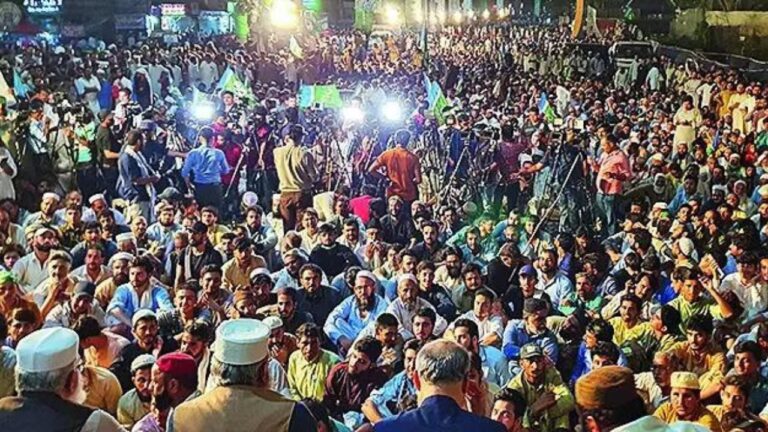ISLAMABAD: At least 43 people have been killed and more than 200 injured after a land dispute escalated into a wider sectarian conflict between Sunni and Shiite tribes in Pakistan’s volatile Kurram tribal region bordering Afghanistan.
Local authorities have confirmed that 43 people have been killed and more than 200 injured since clashes began on July 24.
The two warring tribes, with the aid and support of local tribal jirgas – traditional gatherings of tribal elders – announced a temporary ceasefire on Monday after a morning of heavy artillery and gunfire.
The volatile mountainous Kurram region has seen deadly conflict between tribal and religious groups, sectarian clashes and militant attacks over the past few decades. According to the government’s Department of Interior and Tribal Affairs, there are currently eight major ongoing conflicts in Kurram, some of which date back to pre-partition times.
The latest clashes broke out last week between two Shiite and Sunni families over land ownership, and the hostility quickly spread to several villages and hamlets across the district.
According to officials, 34 of the dead belonged to Shiite tribes and eight to Sunni tribes. Gunfights between Shiite and Sunni tribes continued from Sunday night until Monday morning in Makbal and Teri Mangal areas of Upper Kurram, near the Afghanistan border, Para Chamkani in Middle Kurram and Barish Khel in Lower Kurram. Locals said Sunni tribes in the area received support from the other side of the border as the same families live on both sides of the Durand Line, the disputed border between Pakistan and Afghanistan.
Clashes broke out as both warring sides fired at each other with small and large arms, and most villages in the region faced shortages of food and life-saving medicines as authorities closed roads to contain the unrest.
Local authorities have confirmed that 43 people have been killed and more than 200 injured since clashes began on July 24.
The two warring tribes, with the aid and support of local tribal jirgas – traditional gatherings of tribal elders – announced a temporary ceasefire on Monday after a morning of heavy artillery and gunfire.
The volatile mountainous Kurram region has seen deadly conflict between tribal and religious groups, sectarian clashes and militant attacks over the past few decades. According to the government’s Department of Interior and Tribal Affairs, there are currently eight major ongoing conflicts in Kurram, some of which date back to pre-partition times.
Expanding
According to officials, 34 of the dead belonged to Shiite tribes and eight to Sunni tribes. Gunfights between Shiite and Sunni tribes continued from Sunday night until Monday morning in Makbal and Teri Mangal areas of Upper Kurram, near the Afghanistan border, Para Chamkani in Middle Kurram and Barish Khel in Lower Kurram. Locals said Sunni tribes in the area received support from the other side of the border as the same families live on both sides of the Durand Line, the disputed border between Pakistan and Afghanistan.
Clashes broke out as both warring sides fired at each other with small and large arms, and most villages in the region faced shortages of food and life-saving medicines as authorities closed roads to contain the unrest.

